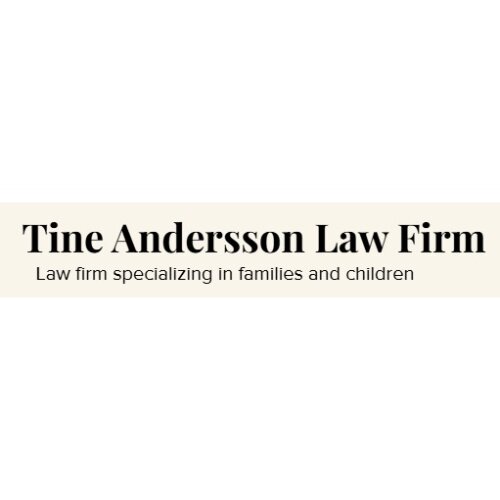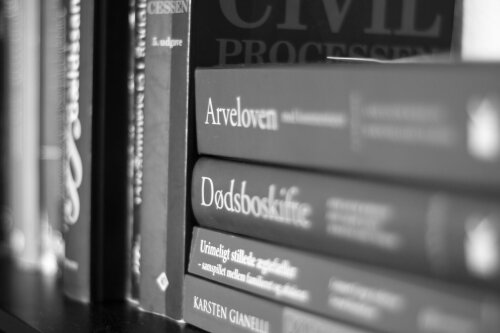Best Family Lawyers in Denmark
Share your needs with us, get contacted by law firms.
Free. Takes 2 min.
Free Guide to Hiring a Family Lawyer
Or refine your search by selecting a city:
List of the best lawyers in Denmark
About Family Law in Denmark
Family law in Denmark encompasses a broad range of legal issues that relate to family relationships. These issues typically include marriage and divorce, child custody and visitation, child and spousal support, division of marital assets, and other family-related matters. The Danish legal system aims to provide a fair, efficient, and compassionate approach to resolving familial disputes, always prioritizing the welfare of any children involved. The foundation of family law in Denmark is the Act on Parental Responsibility, which governs issues related to parental rights and custody matters.
Why You May Need a Lawyer
There are several scenarios where individuals in Denmark might require legal assistance in family matters. These situations include but are not limited to:
- Filing for a divorce or separation and navigating the process.
- Negotiating asset and property distribution during a divorce.
- Determining child custody arrangements and visitation rights.
- Seeking fair child or spousal support agreements.
- Handling domestic violence or abuse cases.
- Adopting a child and understanding the legal requirements involved.
- Drafting prenuptial or postnuptial agreements.
While some family law issues can be resolved amicably without legal representation, hiring a lawyer may ensure your rights are protected and that you receive fair treatment.
Local Laws Overview
Danish family law is primarily governed by statutes and regulations, supported by the principles set out in the Danish Administration of Justice Act. Here are some key aspects:
- Marriage and Divorce: Marriage in Denmark is a contract between two consenting individuals, which can be dissolved through divorce. The Family Court handles all divorce proceedings.
- Child Custody and Support: The principle of 'best interest of the child' is fundamental. Custody can be sole or joint, and both parents are financially responsible for their children.
- Property Distribution: The Danish Matrimonial Act governs the division of property, typically splitting jointly-owned assets equally unless specified otherwise in a prenup agreement.
- Domestic Violence: Denmark has specific laws aimed at protecting family members from domestic abuse, including orders of protection and support services for victims.
Frequently Asked Questions
What is the process for getting a divorce in Denmark?
The divorce process in Denmark requires an application be submitted to the Agency of Family Law. The process could involve mediation, especially when children are involved. If both parties agree on the terms, the divorce can be finalized relatively quickly.
How is child custody determined in Denmark?
Custody decisions are made based on the best interests of the child. Danish law prefers joint custody arrangements to ensure both parents remain involved in the child's life unless circumstances dictate otherwise.
What rights do non-Danish citizens have in Danish family law cases?
Non-Danish citizens generally have the same legal rights as Danish citizens in family law cases, but immigration status could affect specific aspects related to parental rights and child residence matters.
Can a prenuptial agreement be enforced in Denmark?
Yes, prenuptial agreements are legally recognized in Denmark as long as they are drafted in accordance with Danish laws and do not violate public policy.
What are the grounds for divorce in Denmark?
Denmark allows for no-fault divorce, meaning a couple does not need to prove fault or wrongdoing to obtain a divorce. Mutual consent or living apart for a specified period can be grounds for divorce.
How is spousal support determined?
Spousal support is not automatically granted. It is determined on a case-by-case basis, considering factors such as the length of the marriage, the financial situation of both parties, and their future earning potential.
Is mediation required in family law disputes in Denmark?
Mediation is often encouraged, especially in disputes involving children, to reach an amicable solution that reflects the child’s best interests without lengthy court proceedings.
Can I relocate with my child without the other parent's consent?
Relocation with a child within Denmark requires the consent of the other parent if joint custody is in place. Without consent, legal intervention is necessary to resolve the issue.
How are assets divided in a divorce?
Assets acquired during the marriage are typically divided equally unless a prenuptial agreement specifies otherwise. The court aims for a fair distribution based on the couple's specific circumstances.
Are same-sex marriages recognized in Denmark?
Yes, Denmark has recognized same-sex marriages since 2012, and they have the same legal rights as heterosexual couples, including family law matters.
Additional Resources
Several resources and organizations can provide valuable assistance and information on family law matters:
- The Agency of Family Law (Family Court Services): For court proceedings and legal information.
- Dansk Kvindesamfund (Danish Women's Society): Offers support for domestic violence victims.
- Den Sociale Retshjælp: Provides free legal advice in family law matters.
- Børns Vilkår (Children's Welfare Society): Offers support and helplines for families and children in crisis.
Next Steps
If you find yourself needing legal assistance in family law, consider the following steps:
- Gather all relevant documents related to your case, such as marriage certificates, financial records, and any legal agreements.
- Contact a qualified family law attorney in Denmark who can provide expert legal advice and representation.
- Consider engaging in mediation if you're looking for an amicable solution, particularly in cases involving children.
- Stay informed about your legal rights and obligations under Danish law, and regularly communicate with your legal counsel about your case's progress.
Lawzana helps you find the best lawyers and law firms in Denmark through a curated and pre-screened list of qualified legal professionals. Our platform offers rankings and detailed profiles of attorneys and law firms, allowing you to compare based on practice areas, including Family, experience, and client feedback.
Each profile includes a description of the firm's areas of practice, client reviews, team members and partners, year of establishment, spoken languages, office locations, contact information, social media presence, and any published articles or resources. Most firms on our platform speak English and are experienced in both local and international legal matters.
Get a quote from top-rated law firms in Denmark — quickly, securely, and without unnecessary hassle.
Disclaimer:
The information provided on this page is for general informational purposes only and does not constitute legal advice. While we strive to ensure the accuracy and relevance of the content, legal information may change over time, and interpretations of the law can vary. You should always consult with a qualified legal professional for advice specific to your situation.
We disclaim all liability for actions taken or not taken based on the content of this page. If you believe any information is incorrect or outdated, please contact us, and we will review and update it where appropriate.
Browse family law firms by service in Denmark
Denmark Attorneys in related practice areas.
Browse family law firms by city in Denmark
Refine your search by selecting a city.

















